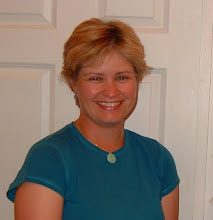There are certain places that I have visited over the past ten to fifteen years which have truly stopped me in my tracks and given me a particular, peculiar 'feeling'. It's dfficult to know how to put this feeling into words, but the overall sense I get is one of connection to other people over hundreds and sometimes thousands of years. It's as if I'm looking at things through their eyes, and I certainly feel as if I'm treading in their footsteps.
The specific places I'm talking about which give me these kinds of tingles are both local to me here in Swindon and further afield. Of the local sites, I'm talking about Avebury stone circle, Silbury Hill, West Kennet Long Barrow, Waylands Smithy and White Horse Hill at Uffington, indeed anywhere along the Ridgeway and in amongst the North Wilts downs.
Further afield I love to walk in the sunken paths, the ancient holloways of Dorset and Somerset, feeling like I'm continuing an ancient tradition of migration. Robert Macfarlane writes very compellingly about these paths in his beautiful book "The Wild Places":
"These holloways are humbling, for they are landmarks that speak of habit rather than suddenness. Trodden by innumerable feet, cut by innumerable wheels, they are the records of journeys to market, to worship, to sea. Like creases in the hand, or the wear on the stone sill of a doorstep or stair, they are the consequence of tradition, of repeated action. Like old trees - the details of whose spiralling and kinked branches indicate the wind history of a region, and whose growth rings record each year's richness or poverty of sun - they archive the past customs of a place."
It is indeed the connection to others' habits and daily lives that gives me tingles in these places. All the hill forts, paths and monuments to ancient times either look out over, weave through or hide among landscapes that I can truly imagine others feeling every day fortunate to be part of.
When I first came to Swindon I was reading Thomas Hardy, and I felt thrilled to be walking the same Wessex routes as many of his characters. This landscape somehow captured my imagination and made me feel safe and connected to many other souls who settled here.
What is the magic that I catch in these places?
I'm not one necessarily for UFOs and Orbs and Crop Circles, although I'm open-minded about most things, but I can understand how others are driven, through their own tingles, to imagine evermore fantastical "powers" and unexplained apparitions. There's lots of video footage on Youtube purporting to reveal the appearance of orbs on the landscape, though George Wingfield, a Wessex Sacred Sites expert I was recently talking to, assured me that all these, along with the majority of crop circles, are of course the product of marvellous fakery.
Personally I believe the magic I'm catching is one of human consciousness and industry. All that has been written about these places, and all that has been constructed in these places, the remnants of which can still be traced, conveys a timeless sense of imagination, creativity, resourcefulness, response to beauty and deisre to work in harmony with the land, which is common to all humanity, as much then as now.
I wonder if the tingles I feel are at all similar to how Tim Smit felt when he first set foot, machete in hand, into the brambly overgrowth that was to become the Lost Gardens of Heligan. I went to listen to Tim on Wednesday evening as part of the Swindon Festival of Literature, and I was reminded of the remarkable effect Heligan had upon me when I first visited it 5 years ago.
It was a visit that changed my life and my outlook completely. I became fascinated by sustainability, local food production, kitchen gardens and the society they supported. On my return home I registered with an organic box scheme from a local walled garden, and stopped buying vegetables in the supermarket. As a consumer I voted with my feet, and am pleased to say that along with similar actions from other consumers the supermarkets are gradually changing their stock to be more organic, and more locally produced. But that is another story.
I was of course doing more than voting with my feet. I was also voting with my heart and my imagination, because the Lost Gardens of Heligan had given me the usual tingles. I saw so much evidence of Victorian and Edwardian ingenuity that had all been lovingly restored, the reminders of civilised and sustainable community and society before the barbarity of the First World War, and I wanted to reconnect with that ethos and that time and those resourceful human souls in a tangible way in my own life and habits. I wanted to find a way of translating those tingles, and carrying them away with me.
Like in so much of the rest of Britain, life was never the same again at Heligan after the war. The gardeners were wiped out, leaving their tools and pots and overalls to languish behind them. I guess the sadness of the Heligan story, and the triumphant regeneration of the place by hopeful and optimistic individuals, only adds to the tingles, and confirms for me that what I feel in certain places is indeed a pride and excitement about the imagination, the creativity and the resourcefulness of our forebears' consciousness.
So I'm grateful for these tingles. They remind me of my place in the human chain, and they inspire me to live my life with greater imagination and gratitude. They occur whenever I come across evidence of human relationships with the landscape, and with each other, and sometimes bring tears to my eyes.
Ruby Wedding Cake - the Winner!
14 years ago


